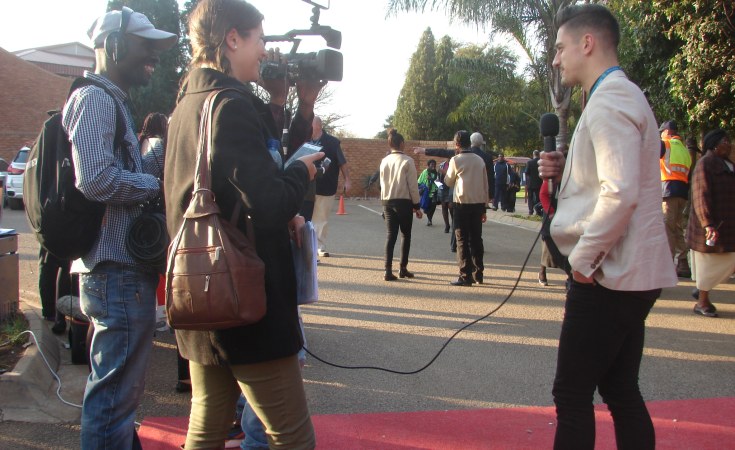Pretoria — Software pioneer Bill Gates has delivered the 14th Nelson Mandela Annual lecture at the University of Pretoria's Mamelodi Campus on the eve of Mandela Day, which marks the birthday of former president Mandela but also his more than six decades of public service.
The annual lecture honours the legacy of its founder, but also raises topical issues affecting South Africa and the world. It goal is to encourage dialogue in order to address global challenges. Cheryl de la Rey, vice Chancellor and principal of the University of Pretoria, highlighted the importance of public universities in preparing graduates that are aware of and involved in their communities.
Njabulo Ndebele, chair of the board of the Nelson Mandela Foundation, noted that this year's lecture is a tribute to the people of Mamelodi who sacrificed so much in the liberation struggle. "Some names loom large in the public imagination - Solomon Mahlangu, Stanza Bopape, and the Ribeiros, for example. But far more are little-known or unknown. We honour them all with this lecture. In particular we remember those who gave their lives in 1986, exactly thirty years ago - the Mamelodi Ten, the Kwandebele Nine, Walter Alset, Samuel Ledwaba, Reginald Kekana, Madiphoso Masuku ..."
The Mamelodi 10 were young activists - mostly teenagers - who were abducted in June 1986 by the apartheid government's security police, drugged and set alight.
"This talk is dedicated to the families of those who died and who have experienced the gap between the hopes of that time and what is our present reality", who live in a country where "the dream of inclusion is swallowed up by the reality of exclusion", Njabulo said.
Gates, now 60, co-founded Microsoft in 1975 with his childhood friend Paul Allen. He went on to lead the company to become a global provider of innovative software services. The Bill and Melinda Gates Foundation provides catalytic funding, technical expertise, and a wide range of experience to support the work of existing organisations, but also engages in research in a number of sectors including health, education, smallholder agriculture and ICTs.
The theme of the 2016 lecture is "Living Together".
"This is fitting," Gates said, "because in many ways, "living together" was also the theme of Nelson Mandela's life. The system he fought against was based on the opposite idea-that people should be kept apart, that our superficial differences are more important than our common humanity".
He went on to ask: "What can South Africa be, what can Africa be, what can the world be - and what must we do to make it that way?"
Gates spoke about a number of successes on the African continent such the reduction in maternal and child mortality, robust economic growth in the last decade, and some progress in dealing with malnutrition and HIV/Aids but many challenges remain, he says.
He echoed Nelson Mandela's belief in the creativity, passion and innovation of young people and the power of education to transform societies.
"In a few days, I'll be meeting with some of these young innovators. People like the 21-year-old who founded Kenya's first software coding school to provide other young people with computer programming skills. And like the 23-year-old social entrepreneur here in South Africa who manufactures schoolbags from recycled plastic shopping bags."
"The real returns will come if we can multiply this talent for innovation by the whole of Africa's growing youth population. That depends on whether Africa's young people - all of Africa's young people - are given the opportunity to thrive", Gates said.


